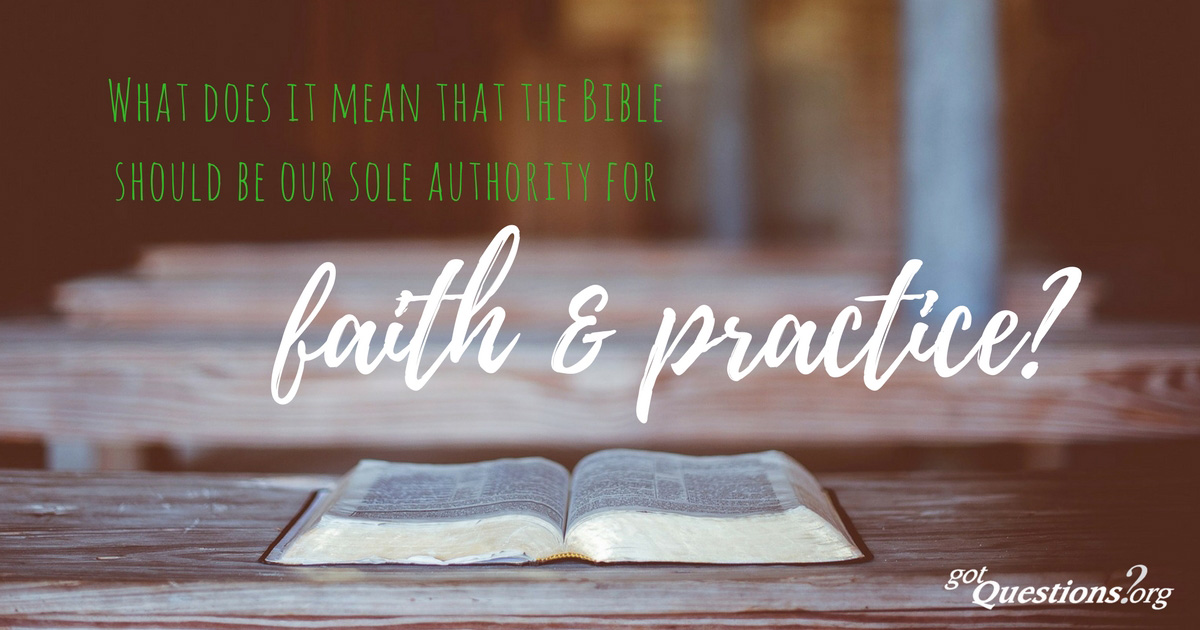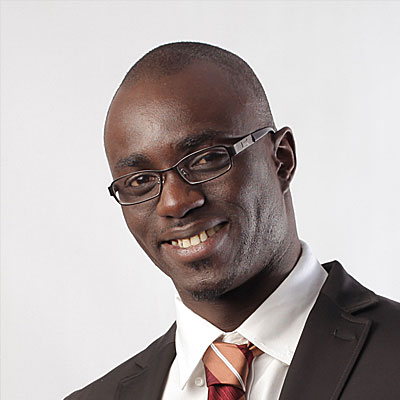Faith And Practice: The Dovetailing Problem
 July 22, 2019
July 22, 2019
In ordinary parlance, “faith” means “strong belief”. It means reliance, trust, pledge, loyalty, fidelity. For instance, the statement “I believe you” would imply that “I trust you,” “I am convinced that you are telling the truth”. Similarly, “I believe in what you are saying” means that “I am convinced that the content of your words corresponds to or agrees with objective reality”. “To believe”, therefore, means “to accept and to acknowledge as true and corresponding to reality the content of what is said, that is, the content of the words of another person by reason of his credibility”. Thus, when one expresses the statement “I believe”, he is saying two things at the same time: that he believes the person who has made a statement and the truth of what he says. So, faith, whether it is in another human being or in God, means taking something on the word of another. It implies a new knowledge that can be acquired only by taking someone else’s word for it. Thus, “faith” is used here not necessarily in terms of religious faith, but in terms of “trust”, “loyalty”, “pledge”, etc. “Are we loyal to our words?” “Do we make good our promises?”
The ordinary definition of practice simply says, “Action rather than ideas” or “Action not ideas.” For example, the theory and practice of teaching; the man is determined to put his new ideas into practice.
“Dovetail” is used here in the sense of “fitting together.” To say that two things dovetail or that one thing dovetails with another means that they fit together well. This is precisely where the problem of faith and practice lies. Oftentimes, the two terms do not fit together in reality. A problem is a thing that is difficult to deal with or to understand. What is being said in this piece is that, oftentimes our faith or trust or loyalty is hardly translated into action. It is clearly a case of saying or promising one thing and doing the very direct opposite. This is a problem. This is the situation Nigeria is currently experiencing. This is precisely what Kogi State is experiencing in the p resent political dispensation.
At the beginning of this year, majority of Nigerians, if not all, took their New Year’s Resolutions, all of which are certainly geared towards improving their lives’ situations and changing for the better. As the second half of the year begins, it is necessary that Nigerians take time off to reflect critically on how well they have been able to translate their words (resolutions) into actions. They should reflect on how well they have improved their relationships with their brothers and sisters. Considering the ugly situations being experienced at present in this country, especially in Kogi State, can anyone make bold to say that things have improved? In his homily on the Ascension of the Lord, entitled “Witness to Sanctity of Life on May 22, Catholics Told,” the Secretary General of the Catholic Secretariat of Nigeria, Fr. Ralph Madu, while speaking on the Statement of the Catholic Bishops Conference, released in Rome, April 26, during the Ad Limina Visit of the Bishops to Rome; on the murder of two Catholic Priests and 17 other Catholic faithful at St. Ignatius Catholic Church, Ukpor-Mbalom, Gwer Local Government of Benue State, by Fulani herdsmen, in the morning of Tuesday 24 April; noted that “the Bishops were shocked by the dastardly acts of the Fulani herdsmen and disappointed by the lukewarm attitude of the government and the country’s security agencies, at curtailing the nefarious activities of these rampaging killers” (CSN Communications csnsocialcommunications@gmail.com).
On the front page of the communiqué issued at the end of the 2018 National Seminaries Committee Workshop held at the Spiritan School of Philosophy, Isienu, Nsukka, from 2 – 5 May, 2018, the second paragraph reads, “The Church in Nigeria is passing through a very trying time more than ever before. The recent massacre of two Catholic Priests and some parishioners (17) during Holy Mass in Benue State and similar killings in other parts of the country strike a deep note on the ears of the populace. With all the human efforts put in place to promote dialogue, the impression for now is that dialogue is not bearing the desired fruit. The recent letter of the Catholic Bishops Conference of Nigeria addressed to the President of the federation on the state of the nation speaks for itself.” The sixth paragraph reads, “Boko Haram has been launching ceaseless attacks on churches, schools, communities, government properties and security agencies leading to loss of thousands of human lives and invaluable properties. And today we see the intractable and ferocious Fulani-Herdsmen going further to kill, dispossess and occupy territories to the utter embarrassment of Nigerians. In the meantime, the government has failed to checkmate the situation.” One of the recommendations at the said workshop is that “Government should be held accountable for the life of every citizen irrespective of religion or ethnic group.”
Referring to the killing of the two priests and 17 lay faithful in Makurdi already stated above, as well as other killings that had taken place in different parts of the country before now, in his article published on the seventh page of the June 2018 Edition of The Light Newsletter, entitled “…and our Priests died: Recounting Nigeria’s Security Challenges and the Failure of the Leadership: A Response,” Fr. Daniel Sule emphatically stated, “The point is that Nigerians are fed up with these killings; our minds are saturated with the excuses offered, as the popular chant goes ‘enough is enough’”. Fr. Daniel subsequently noted with dismay that “the insensitivity of the government is an indication of their failure and incompetence, and until they are ready to wake from their slumber, then they have lost their relevance and the only alternative is to resign….”
It is the picture of the Nigerian situation painted above that makes a great majority of Nigerians to hold tenaciously to the popular adage that says, “It is easier said than done!” In other words, it is very easy to make promises; it is easy to take an oath; it is easy to make a pledge; it is easy to take a vow; it is easy to swear—all these shall become empty and futile, if they are not translated into practicality. For instance, on the day of their swearing-in ceremonies, our political leaders took an oath to protect the lives and property of the citizens of this country. The pertinent question they should ask themselves is the extent to which they have kept such promises, having gone almost three-quarter into this administration. The spate of killings by Fulani herdsmen, especially in Benue State; the killing of two priests and 17 lay persons in the morning of Tuesday, 24 April, 2018, who were buried on May 22, 2018; other subsequent killings in Benue State and in different parts of the country, especially in the North; the various killings by the Boko Haram insurgents, especially in the core North; the ceaseless kidnappings and hired assassinations taking place in almost all parts of the country; the spate of armed robberies in banks and on the highways; and unfortunately, the government’s silence on all these—are all evidence of the ineptitude of Nigerian political leadership.
The Federal Government’s silence on these matters is insidious; it is a breach of the oath this political administration took to protect the lives and property of Nigerians during the swearing-in ceremonies. Our leaders have totally lost the confidence the people had reposed in them before giving them their votes. The government is no longer reliable, dependable or trustworthy. Their faith, loyalty, reliance, and trust have been thrown to the dogs!
With much dismay and displeasure, I make bold to say that all the evils enumerated and painted above are summed up in Kogi State. In addition, there exist some inhuman and sub-human situations in the State including endless screening exercise, non-payment of salaries and pensions for months and for years; hunger and starvation have become the lot of the people and ‘almost accepted as a normal way of life’; the education system has utterly collapsed, consequent upon non-payment of salaries and the resultant strike actions that characterize all levels of education in the State; the State’s Polytechnic has not had hostel accommodation for almost two years now—all the students now stay off campus. This situation has exposed them to various hazards, including being killed by long vehicles, being burnt up in autocrash and other road mishaps on their way to school; people dying of otherwise curable diseases, not only due to lack of money to buy the necessary drugs, but because the condition of the health institutions in the State is, to say the least, a write-off! What other adjective can be used to qualify a State’s health institution where there are no drugs, no good laboratories, no equipment, no good mortuaries—and the entire hospital environment appears very untidy and overgrown with weeds, and infested by mosquitoes. “Sorrowful” is the least adjective that can be used to describe a situation where a patient on admission in the hospital is treated of one disease, only to be infected with another.
What about the allocations from the federal government to the State and to the Local Governments for various projects? These are either diverted to private pockets with impunity or spent on white elephant projects. God is tired of the “lip service” we pay to Him and to one another. People make promises without the corresponding frantic efforts to make good their promises, and their consciences never prick them. Oh, what a wicked world!
To solve this dovetailing problem of faith and practice, St. James advises, “Be doers of the word and not just hearers, lest you deceive yourselves. The hearer who does not become a doer is like someone who looks in the mirror. He looks and then promptly forgets what he was like. But he who fixes his gaze on the perfect law of freedom and holds on to it, not forgetting what he has heard, but acting on it, will be blessed in what he does” (James 1:22-25). Again, he says, “Brothers, what good is it to profess faith without having works? Can such faith save you? If a brother or sister is in need of clothes or food, and one of you says to him, ‘May all go well with you; keep yourself warm and eat well,’ without attending to their material needs, what good is that? So it is for faith without works: it is totally dead” (James 2:14-17). Our Lord Jesus showed himself a man of great faith by the way he lived his life. We are told “…He went about doing good ….” (Acts 10: 38). He, therefore, states categorically that, “it is not those who say to me ‘Lord, Lord’, who will enter the kingdom of heaven, but those who do the will of my Father in heaven” (Mt. 7:21).
It is possible to have a moral person who is not religious; however, it is not possible to have a truly religious person who is not moral. If a person is not moral but claims to be religious then, he is not truly religious. This is because every religion needs morality to exist. On the contrary, morality does not need religion to exist. Of course, no authentic religion would tell its adherents to do evil: faith has a moral content. No wonder, then, Pope St. Leo remarks, “The faith of those who do good is untroubled. The things you desire you will obtain; the things you love you will possess eternally.”Active faith is the kind that is translated into practical life. In fact, a word in any event is not truly received until it passes into action, until it is practised. In the same way, faith is a decision which involves one’s whole life and existence. This is essentially a situation where faith and practical life dovetail. It is a sign of true living, embrace it!
BY REV. FR. MARK AJIGA
 Guy Wilkins
Guy Wilkins Larry Reed
Larry Reed Roxanne Holland
Roxanne Holland Bridget Kennedy
Bridget Kennedy Sally Mendoza
Sally Mendoza